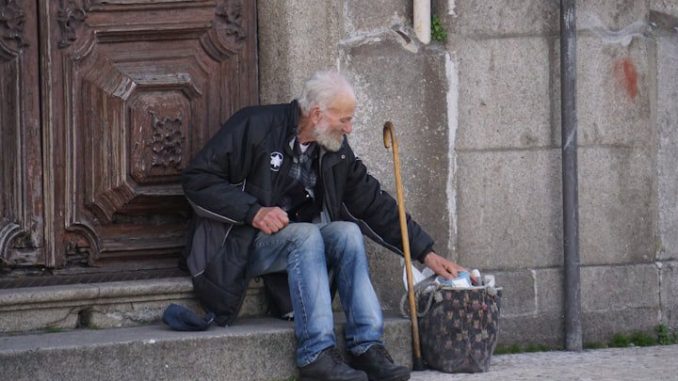
While there isn’t definitive data readily available on the exact number of beggars in each country, poverty is a strong indicator of where begging may be more prevalent. Here’s a look at six countries grappling with significant poverty rates and the complex reasons behind them:
1. Madagascar: Madagascar, an island nation off the coast of Africa, faces an extreme poverty rate exceeding 80%. This translates to a large portion of the population struggling to afford basic necessities like food, shelter, and healthcare.
Causes of Poverty:
Environmental factors: Madagascar is prone to natural disasters like cyclones and droughts, which disrupt agricultural production and livelihoods.
Limited economic opportunities: The economy relies heavily on agriculture, making it vulnerable to fluctuations in global commodity prices.
Political instability: Political instability can deter investment and hinder economic growth.
2. The Democratic Republic of the Congo (DRC): The DRC, a vast nation in Central Africa, experiences a poverty rate exceeding 70%. Decades of conflict, political instability, and corruption have significantly hampered development.
Causes of Poverty:
Civil war and conflict: Decades of civil war have devastated infrastructure, displaced people, and hindered economic activity.
Corruption: Rampant corruption diverts resources away from vital services like education and healthcare.
Exploitation of natural resources: The rich natural resources of the DRC, like cobalt and coltan, are often unethically mined, with little benefit reaching the local population.
3. South Sudan: South Sudan, the world’s youngest nation, struggles with a poverty rate exceeding 75%. Years of civil war have left the country in ruins, with limited infrastructure and a shattered economy.
Causes of Poverty:
Civil war: The brutal civil war has crippled the economy and displaced millions.
Food insecurity: Conflict and climate change have disrupted agricultural production, leading to food insecurity.
Weak governance: Weak institutions and lack of rule of law hinder development efforts.
4. Yemen: Yemen, a nation on the Arabian Peninsula, faces a humanitarian crisis with a poverty rate exceeding 70%. Years of civil war and a crippling blockade have caused widespread hunger and suffering.
Causes of Poverty:
Civil war: The ongoing civil war has devastated infrastructure, displaced millions, and disrupted economic activity.
Food insecurity: The war and a blockade on essential supplies have created a severe food crisis.
Breakdown of healthcare: The healthcare system has collapsed, leaving many without access to basic medical care.
5. Ethiopia: Ethiopia, a nation in East Africa, has a poverty rate exceeding 40%. While economic growth has been achieved in recent years, significant challenges remain.
Causes of Poverty:
Droughts and climate change: Droughts and erratic weather patterns disrupt agricultural production, impacting food security.
Limited economic diversification: The economy relies heavily on agriculture, making it vulnerable to external shocks.
Rapid population growth: Rapid population growth puts a strain on resources and limits opportunities for all.
6. Nigeria: Nigeria, Africa’s most populous nation, has a poverty rate exceeding 40%. Despite its vast oil reserves, income inequality remains a significant challenge.
Causes of Poverty:
Uneven distribution of oil wealth: The wealth generated from oil doesn’t trickle down to benefit the majority of the population.
Corruption: Corruption diverts resources away from vital services and infrastructure development.
Conflict and insecurity: Insurgency in the north disrupts economic activity and displaces people.
Beyond Poverty: A Look at Other Factors Contributing to Begging
While poverty is a major driver of begging, other factors can contribute to it as well:
Lack of social safety nets: In countries with weak social safety nets, individuals and families who fall on hard times may resort to begging to survive.
Disabilities: People with disabilities may face challenges finding employment and may turn to begging to meet their basic needs.
Broken family structures: Orphans, abandoned children, and those from broken families may be more vulnerable to begging.
Human trafficking: In some cases, organized crime rings exploit individuals, forcing them into begging……..S££ MOR£
S££ Why The Eyes Of The Criminals Are Covered During Execution (Photos)

Leave a Reply